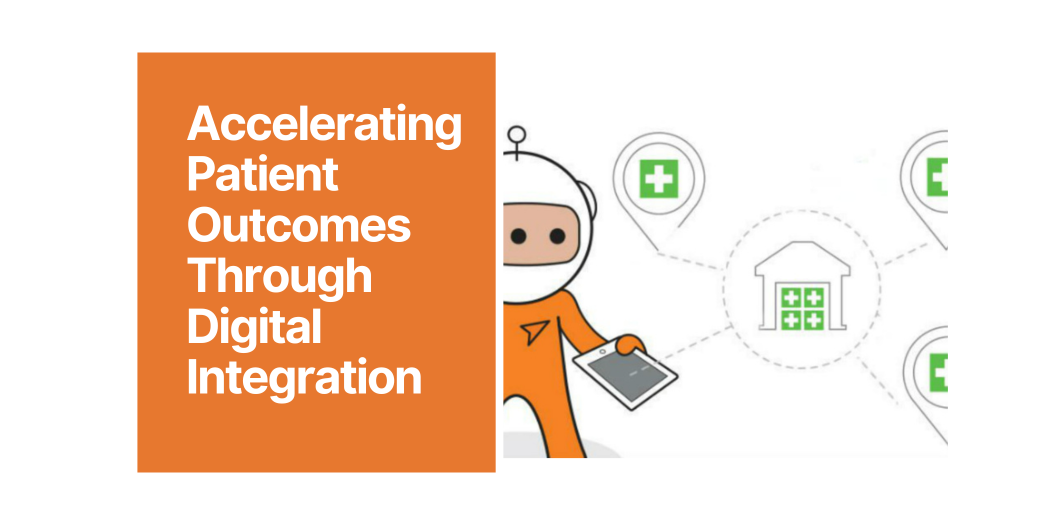Accelerating Patient Outcomes Through Digital Integration
Caroline Macleod
Jan 22, 2018 10:24:00 AM

Whether you're looking to optimise your business processes or streamline your operations, we have the expertise and experience to help you achieve project success.
Contact us today to discuss your needs further.
Learn how our SAP solution extensions can help your workforce reduce reliance on manual paper based activities and ensuring the ever changing needs of your supply chain operational workforce is supported.
Book a demo to learn more.
We work closely with our clients to understand their unique needs and challenges. Explore our SAP expertise services to learn more.

Closer collaboration between differing organisations that deliver care represents a different way of working for the NHS and is the basic idea behind accountable care – different organisations working together to improve the health of the local population by integrating services and tackling the causes of ill health.
Find out more about our SAP Healthcare services
Digital innovation is helping the healthcare industry to anticipate demand and supply for services, streamline prevention, deliver cost-effective care and treatment and give patients greater control over their health. This is creating a foundation for a new patient-centric healthcare system that supports integrated care platforms and communities of health.
This emerging ecosystem can provide services and solutions that will help the NHS, Local Councils and Clinical Commissioning Groups (CCGs) tackle their financial challenges and develop a new and sustainable outlook for real time insight-led procurement and commissioning, integrated care, medicines management and care delivery and design.
The NHS Five Year Forward View set out a series of practical and realistic steps that will enable the delivery of a better, more joined-up and more responsive organisation. This plays to digitisation’s strengths; the NHS recognises this and understands that the technology and mindset is the way to improve services.
These new objectives bring immediate and tangible opportunities for healthcare providers to play a critical role, using their experience and expertise to design new models that will enable the NHS to deliver in a world that is unrecognisable from the one in which it was founded almost 70 years ago.
Future service models will need to combine four elements to be successful: patient care that focuses on the best end-result at the lowest possible cost; encouraging patients to be engaged in disease self-management and prevention; research and clinical trials that provide real-world insights; and the optimisation of service offerings as a result of real-time insight and predictive analysis to balance supply and demand.
Real-time analytics take into account that one size doesn’t fit all. It enables each NHS/CCG/Local Government region to make decisions that are right for its own specific needs; this relies on the successful, meaningful integration of healthcare derived data and insights.
Wearable technology and connected devices are already facilitating the delivery of real-time data and improved patient engagement. This enables patients to track their own medical progress, and reminds them about health-management activities such as taking their medication. Giving people the means to take greater charge of their own wellbeing is a crucial step up to the next level of patient engagement.
Taking diabetes as an example, a mobile app (created by SAP and Roche) enables doctors to follow the progress of their patients in real-time via a dashboard. As well as providing unprecedented insight into patients’ lifestyles, people are motivated to take charge of their health.
Holistic care projects are already connecting the hospital, adult social care systems, patient information, home care and other re-enablement services. Linking care provision in the community to care in peoples’ homes is being used to identify, prevent and address problems at an early stage; fall-detectors can flag when someone has fallen at home for example, care planning is being optimised and resources managed more efficiently.
With all this information, easily-accessible in one place, the NHS and other local healthcare stakeholders can design services to fit patients’ needs in a more sustainable, cost-effective manner.
Marking a shift towards an approach that requires closer collaboration between differing organisations that will deliver care represents a different way of working for the NHS and is the basic idea behind accountable care – different organisations working together to improve the health of the local population by integrating services and tackling the causes of ill health. If successful, accountable care will accelerate the implementation of new care models designed to integrate care and promote population health. Kings Fund 2018
Digitisation can enrich and inform interactions that lead to better patient outcomes and financially sustainable models and services. However, on its own, it cannot address all the challenges faced by the healthcare sector; the key to success is recognising that human interaction is essential with services and solutions designed around the patient, and that smart, innovative business process re-design plays a leading role.
Organisations need to seek to understand how to develop business-based models that deliver on the principles of patient centric care, self-management and collaboration.
Rocket Consulting helps organisations to re-imagine themselves for the digital age by looking at the three core areas of business models, business process and work methods. We have been doing this successfully with Blue Chip organisations for over a decade. To find out how to develop your case for playing a part in the healthcare sector of the future, get in touch.
Further information on ACO's: https://www.kingsfund.org.uk/publications/accountable-care-explained